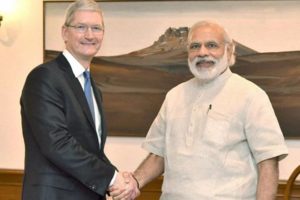 35th GST Council Meeting Highlights
35th GST Council Meeting Highlights
35th GST Council Meeting was held on 21 June 2019 at New Delhi, after a gap of more than three months, chaired by Union Finance Minister, Mrs Nirmala Sitharaman.
This GST Council meeting has been called at a time when the countdown to upcoming Union Budget 2019 is less than a month away. A lot of expectations piled up over months concerning various indirect tax issues will be addressed in this meeting.
Highlights of 35th GST Council Meeting
The 35th GST Council meeting concluded with consensus on the following matters
- GST annual return due date extended till 31 August 2019 for FY 2017-18
The due date for filing GSTR-9, GSTR-9A, and GSTR-9C for the FY 2017-18 has been extended by two months, till 31 August 2019. Official notification can be made anytime soon.
- Aadhaar-enabled GST Registration introduced:
In order to ease the current process of GST registration and reduce the paperwork involved, GST Council has given a go-ahead to a new system for verification of taxpayers registering themselves under GST. Aadhaar number shall be linked to the GSTIN while generation.
- NAA tenure extended by two years
Tenure of National Anti-profiteering Authority (NAA) was due to end by 30 November 2019. GST Council has further extended this tenure by two years, to enable it to take up all the pending cases. Hence, the authority can take up new cases in future due to rate cut issues, indicating that the GST Council has plans for further rationalisation of GST rates.
- 10% penalty to apply for any delay in depositing profiteered amount
GST Council has approved a levy of 10% penalty for delay in depositing the profiteered amount by more than 30 days. This is a fair measure that would encourage timely compliance by the taxpayer.
- E-invoicing to start from January 2020
The new system for raising all the tax invoices on the GST portal has received in-principle approval for implementation from 1 January 2020. This applies to only B2B invoicing. By this system, no separate e-way bill will be required in case of e-invoice. Returns to be framed from these e-invoices. A phased implementation is being worked out.
Earlier, the government had fixed Rs 50 crore as the limit for the applicability of e-invoicing.
- E-ticketing made mandatory for multiplexes
Among other major decisions, the GST Council approved the electronic ticketing system, for multiplexes, having multi-screens. This will help curb cases of tax evasion and the use of black tickets that have been prevalent.
- Rate cut decision on electric vehicles, chargers & leasing thereof deferred; Committee to submit its report
The decision to cut GST rates for electric vehicles and electric chargers have been postponed to the next Council meeting. The matter has been referred to the Fitment Committee for checking the feasibility of the rate cut. At present, the GST rates for electric vehicles and electric chargers are 12% and 28% respectively.
Likewise, the valuation rules for goods and services pertaining to solar power generating systems and wind turbines will be placed before the next Fitment Committee. The suggestions made by this Committee will be placed before the next GST Council meeting.
- Rate cut for lottery put on hold; Matter to be referred before an Attorney General
The previous council meet had not tabled the rate cut matter for lotteries. The 35th GST Council meeting discussed the matter at length and also brought to light two pending cases on this matter before the high court and supreme court respectively. Although the courts had referred the matter back to GST Council, the Council has decided to consult the Attorney General of India.
- GSTAT to be GST Appellate Tribunal.
The GST council also definitively stated the Goods and Service Tax Appellate Tribunal will be the appellate authority and will adjudicate on appeals arising from central and state tax authorities’ in-house dispute resolution system. The states will decide the number of GSTAT required by them as a result of which there can be two tribunals in a single state.
- Other Due date extensions
| Form | New due date |
| ITC-04 for July 2017- June 2019 | 31 August 2019 |
| CMP-02 for opting into the composition scheme for service providers under Notification 2/2019-CT rate | 31 July 2019 |
- For non-filing of GST returns, E-way bills to be blocked
The law stated that where the GST returns in GSTR-3B/ GSTR-4 is not filed for two consecutive tax periods, e-way bill generation for such taxpayers would be disabled. This will be brought into effect from 21 August 2019, instead of the earlier notified date of 21st June 2019.





